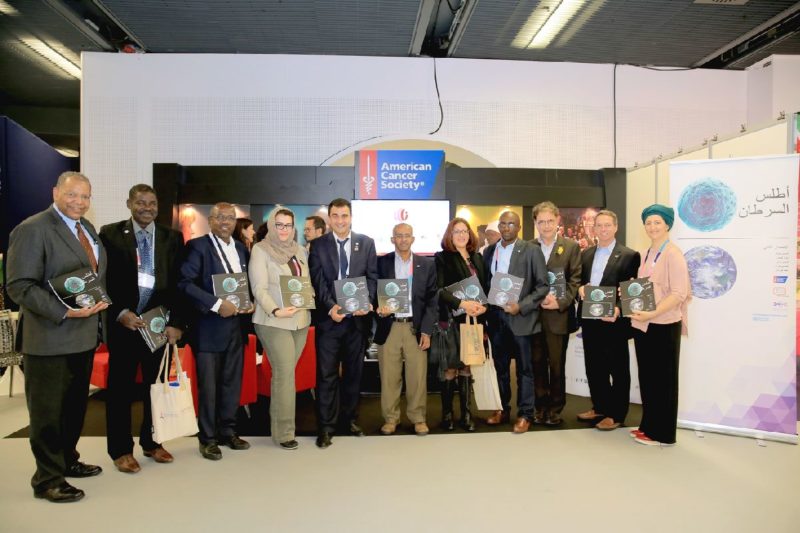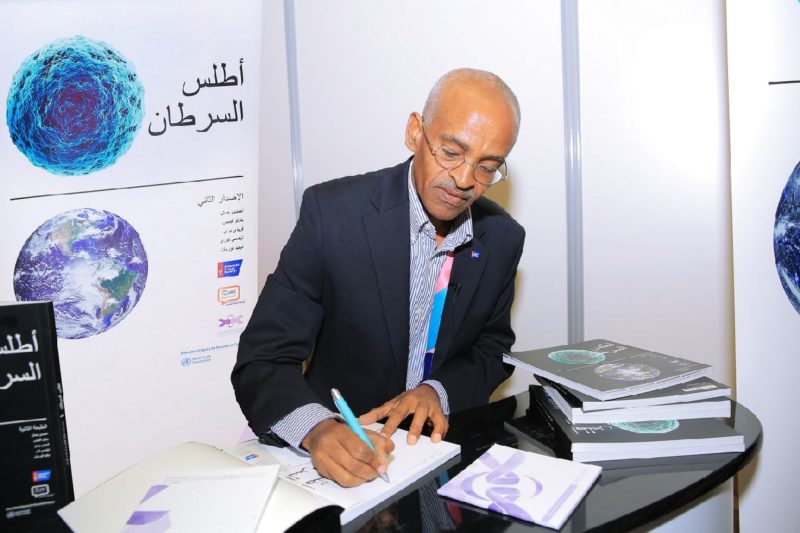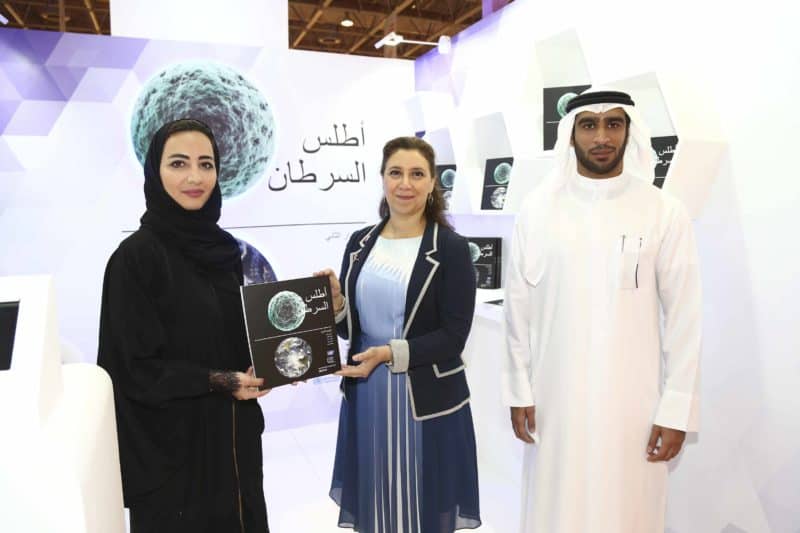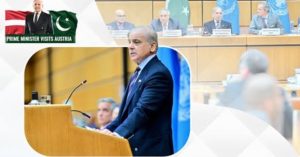SHARJAH – The Friends of Cancer Patients (FoCP) has launched the Arabic version of the second edition of the Cancer Atlas in collaboration with the American Cancer Society, the International Agency for Research on Cancer, and the Union for International Cancer Control (UICC).
The launch comes on the fringe of FoCP’s participation in the 35th edition of the Sharjah International Book Fair (SIBF).
FoCP has prepared 500 copies of the Cancer Atlas that will be distributed to organisations and bodies that are dedicated to spreading cancer awareness locally and internationally.
Read More: Renowned Chefs showcased their dishes at the Sharjah International Book Fair

The Cancer Atlas also provides a comprehensive global overview of information about the psychological effects of cancer on patients and their families, associated risk factors, methods of prevention and measures of control. It also features three main chapters dealing with risk factors, burden of cancer and taking action.
His Highness Sheikh Dr Sultan Bin Muhammad Al Qasimi, Supreme Council Member and Ruler of Sharjah, signed the first copy of the Cancer Atlas at FoCP’s booth, in the presence of FoCP’s board members, including Sheikh Mohammed Bin Abdullah Al Thani, Mohammed Al Musharrakh, Noha Safar and Dr. Shereen Habib.
Read More: Leading writers, intellectuals and cultural figures from across the world to participate in SIBF

Chapter I of the Cancer Atlas focuses on the obvious global variation in cancer incidence where the causes of cancer involve tobacco and smoking habits, infection, unhealthy diet and UV emissions. It emphasises that tobacco is still the main cause of cancer in most high-income countries, while infection plays a big role in a number of African and Asian nations. Obesity is a major risk factor for cancer in most regions in the world.
Chapter II relates to the burden of cancer and illustrates the impact of geographical diversity on the prevalence of various types cancers. Results show that cancer can vary hugely between different populations. In this section, the Atlas describes the burdens of treatment according to the Human Development Index, and the fall in average years of life expectancy. It pays special attention to child mortality and the significant implications for certain economies.
The third chapter focusses on taking action, and illustrates proven means of fighting cancer at every stage of cancer control continuum, including prevention of risk, early detection, treatment and intensive care. Chapter III also provides profiles about organisations dedicated to cancer control, developing modern policies and legislation to tackle cancer and other non-communicable diseases.
The English version of the second edition of the Cancer Atlas was launched in 2014, during the World Cancer Congress in Melbourne, Australia.
The Cancer Atlas collates a large variety of research and cancer data from 184 countries and combines the findings into a comprehensive guide that illustrates the global cancer landscape. It highlights non-communicable diseases in general and cancer in particular, outlining precautionary health measures that governments can take to reduce the burden of the cancer epidemic, especially in low and middle-income communities.














